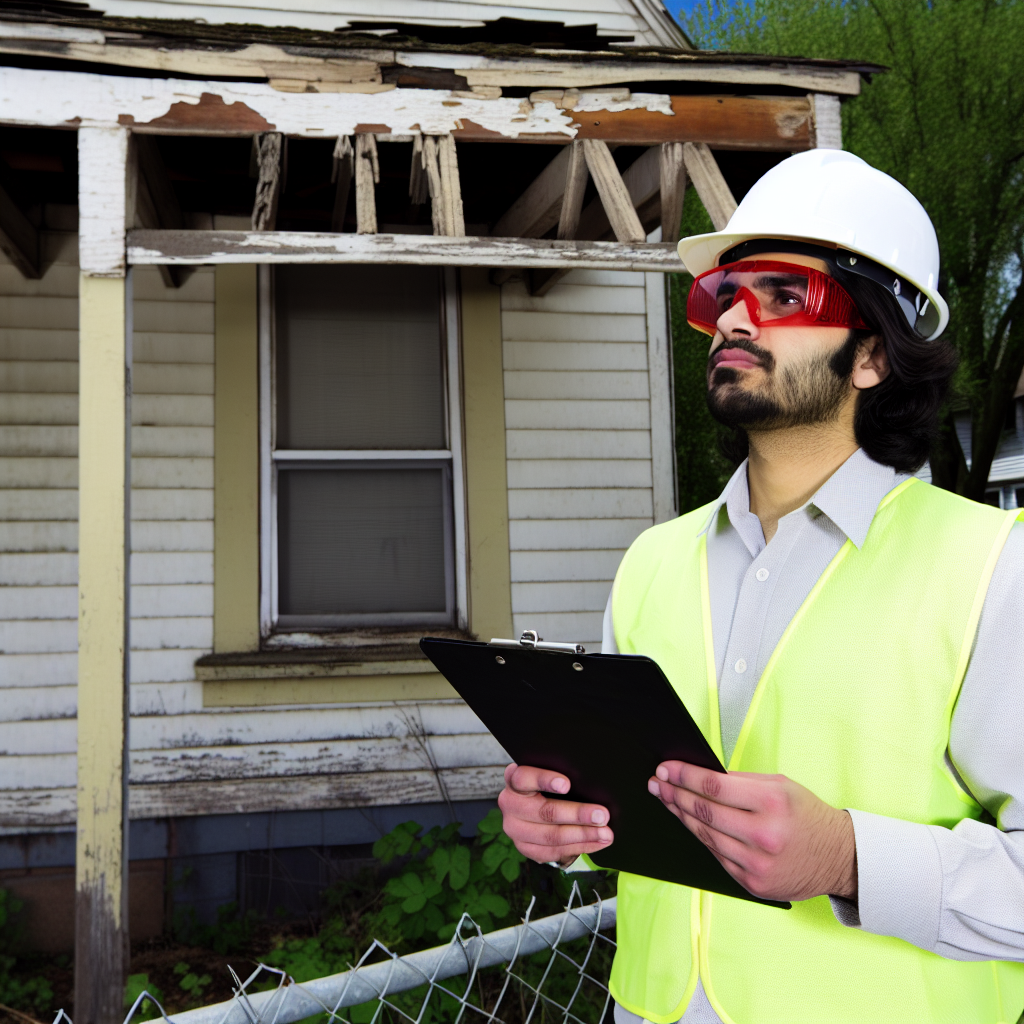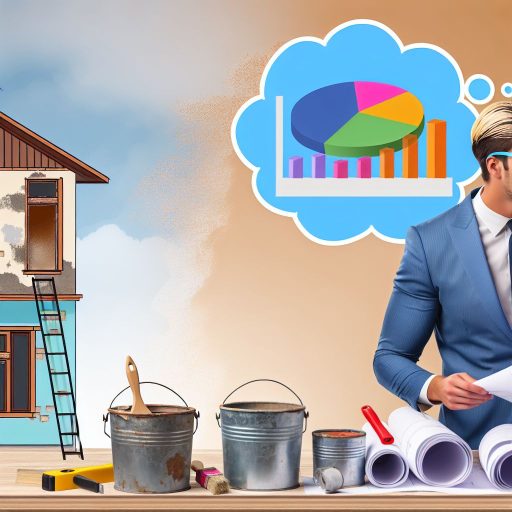Assessing the Structural Integrity of the Property
Understanding Structural Integrity
Structural integrity refers to a building’s ability to withstand its intended load without failure.
It is crucial to evaluate this aspect before purchasing a fixer-upper.
A solid structure ensures safety and reduces costly repairs.
Key Areas to Inspect
Examine the foundation closely.
Cracks in the foundation can lead to severe issues down the road.
Next, assess the roof for any signs of wear or damage.
Reliable roofing protects the home from weather elements.
Also, investigate the walls for cracks and structural shifts.
These indicate potential foundational problems.
Hiring a Professional Inspector
Engaging a qualified home inspector is wise.
They can identify structural issues that may go unnoticed.
Look for inspectors with good reviews and proper certifications.
They can offer valuable insights into necessary repairs.
Understanding Local Building Codes
Familiarize yourself with local building codes and regulations.
This knowledge ensures compliance during renovations.
Non-compliance can lead to fines or future problems.
Budgeting for Repairs and Upgrades
Create a detailed budget for necessary repairs.
Factor in structural enhancements and construction materials.
It’s essential to allocate funds for unexpected surprises.
Always overestimate your budget to cover unforeseen expenses.
Evaluating Cost versus Benefit
Consider the benefits of improving structural integrity against costs.
Enhancements can increase property value significantly.
However, ensure the upgrades align with your overall renovation plan.
Evaluating the Location and Neighborhood Dynamics
Importance of Location
The location of a fixer-upper greatly influences its value.
A great location often leads to better resale value.
Moreover, neighborhoods with strong demand attract buyers quickly.
Assessing Neighborhood Safety
Safety is a top concern for homebuyers.
Research local crime rates for a clear picture.
You can visit neighborhood watch websites for current data.
Additionally, consult local law enforcement for insights.
Evaluating Amenities
Amenities significantly contribute to neighborhood appeal.
Restaurants, parks, and shopping centers enhance convenience.
Proximity to schools is also crucial for families.
Access to public transport can increase property value.
Understanding Future Development
Researching future urban plans is vital.
Upcoming developments can enhance neighborhood desirability.
Conversely, unplanned constructions may decrease your property’s appeal.
Check local government websites for development proposals.
Community Engagement and Demographics
Understanding community dynamics can inform your decision.
Engaged communities often provide a sense of belonging.
Research the demographics to gauge community character.
Friendly interactions with current residents can reveal valuable insights.
Market Trends and Comparisons
Analyzing market trends can guide your purchase decision.
Look at comparable properties to understand pricing.
Consult real estate websites for up-to-date market data.
Additionally, connect with local real estate agents for expert advice.
Understanding the Cost of Renovations and Upgrades
Estimating Overall Renovation Expenses
Before purchasing a fixer-upper, calculate potential renovation costs.
Start by assessing the property's current condition.
Identify critical areas that require immediate attention.
Include expenses for materials and labor in your budget.
Consider unforeseen costs that may arise during renovations.
Prioritizing Essential Upgrades
Not all renovations are equally important.
Focus on structural improvements to ensure safety.
Next, consider installing modern plumbing and electrical systems.
These updates often lead to significant long-term savings.
Additionally, cosmetic enhancements can increase market value.
Researching Local Market Trends
Understanding the local market is crucial for budgeting.
Analyze property values in the surrounding neighborhood.
Find out what similar renovations sell for in your area.
Furthermore, this knowledge helps set realistic expectations.
Consult local real estate professionals to gain insights.
Evaluating Financing Options
Assess various financing options for your renovation project.
Consider a home equity line of credit for flexibility.
Another option is a renovation loan designed specifically for these projects.
Compare interest rates and terms from different lenders.
Moreover, ensure you can comfortably manage monthly payments.
Planning for the Future
When budgeting, think long-term about potential upgrades.
Some improvements will enhance your quality of life.
Others may increase the property's resale value over time.
Balance aesthetic choices with durable materials.
Finally, create a timeline for your renovation project.
Learn More: How To Estimate And Manage Maintenance Costs For Rental Properties
Identifying Necessary Permits and Zoning Regulations
Before purchasing a fixer-upper property, understand local zoning regulations.
Zoning laws determine the permissible use of your property.
These rules can impact renovation plans and future development options.
Research required permits before starting any renovations.
Permits may include building, electrical, plumbing, or environmental approvals.
Consult the local planning office for specific requirements.
Many municipalities have online resources or staff available for inquiries.
Additionally, check if your project falls under historical preservation guidelines.
These regulations can impose extra restrictions, affecting renovation choices.
Meet with a local contractor who understands permit requirements.
This can help you navigate the approval process more efficiently.
Next, consider potential zoning changes in your area.
Changes might open up new opportunities for property value increase.
Stay informed about local planning meetings or community forums.
These venues often discuss upcoming zoning changes.
Finally, evaluate the impact of zoning regulations on resale value.
Properties in areas with favorable zoning often attract buyers more quickly.
Understanding necessary permits and zoning regulations is crucial.
This step can save you time and money in the renovation process.
Uncover the Details: Analyzing Market Demand To Make Informed House Flipping Decisions
Estimating the Property’s After-Repair Value (ARV)
Understanding ARV
After-Repair Value (ARV) represents the estimated market value after renovations.
It’s crucial for determining potential profits from a fixer-upper.
ARV helps you understand what the property could sell for after being improved.
Many factors influence ARV, including market trends and property condition.
Calculating ARV
To calculate ARV, first, research comparable properties in the area.
Look for recently sold homes with similar features and upgrades.
Use their sale prices as a benchmark for estimates.
Adjust for differences in size, location, and amenities.
Consequently, the more comparable properties you include, the more accurate your ARV will be.
Components Affecting ARV
- Location significantly impacts ARV values.
- Property size and layout also play crucial roles.
- The condition of plumbing, electrical, and roofing affects renovation costs.
- Upgrades and renovations add value if done appropriately.
- Current market trends can alter estimates dramatically.
Assessing the Market
Understand the local housing market before buying a fixer-upper.
A seller’s market can inflate prices and affect ARV negatively.
Conversely, a buyer’s market might lead to better deals and higher potential returns.
Additionally, consider the economic outlook for the area.
Job growth and development can boost property values.
Final Considerations
Always seek professional advice for accurate ARV estimates.
Consult with real estate agents or appraisers knowledgeable about the area.
Factor in potential renovation costs to avoid loss.
Therefore, a thorough analysis of ARV ensures a smarter investment decision.
See Related Content: Best Strategies For Marketing Your Rental Property To Potential Tenants

Analyzing the Current Real Estate Market Trends
Understanding Market Dynamics
The real estate market is continually evolving.
Understanding market dynamics is crucial for buyers.
Factors like supply, demand, and economic conditions play significant roles.
Prices can fluctuate based on local economic health.
Analyzing market trends helps identify potential opportunities.
Supply and Demand Factors
Supply refers to the number of available properties.
Demand involves the number of buyers looking for properties.
A balance between supply and demand is essential for price stability.
When demand exceeds supply, prices typically rise.
Conversely, excess supply can lead to lower prices.
Impact of Economic Conditions
The economy significantly influences real estate markets.
Job growth and wage increases can boost buying power.
Low-interest rates often encourage more buyers to enter the market.
On the other hand, economic downturns can result in decreased activity.
Monitoring economic indicators helps anticipate market shifts.
Trends in Fixer-Upper Properties
Fixer-upper properties can offer exceptional value.
Market trends show an increased interest in renovations.
Many buyers are looking for properties they can personalize.
This trend can create opportunities for investors and homeowners.
However, buyers must carefully assess renovation costs and potential returns.
Importance of Local Market Insights
Local market insights help buyers make informed decisions.
Every area has unique characteristics influencing property values.
An analysis of recent sales can provide valuable context.
Buyers should also consider neighborhood development plans.
Local economic forecasts can indicate future market movements.
Delve into the Subject: Strategies To Minimize Risks And Maximize ROI In House Flipping
Calculating Potential Return on Investment (ROI)
Understanding ROI
Return on investment (ROI) is a crucial metric for real estate purchases.
It helps you evaluate profitability after repairs and upgrades.
To calculate ROI, you need to consider multiple factors.
Initial Investment Costs
First, determine your total initial investment in the fixer-upper property.
This includes the purchase price and renovation expenses.
Consider hiring a contractor for accurate renovation estimates.
Additionally, prepare for unexpected costs during renovations.
Estimating Market Value Post-Renovation
Next, estimate the property’s market value after your renovations.
Research similar properties in the area for a realistic evaluation.
Talk to real estate agents for insight into current market trends.
Use recent sales as comparables to gauge potential appreciation.
Calculating Expected Returns
Once you have estimated the after-renovation value, calculate expected returns.
Subtract your total investment from this value to find profits.
For a simple ROI calculation, use this formula: Profit ÷ Investment × 100.
Time Horizon and Holding Costs
Consider your time horizon for the investment as well.
Holding costs can erode potential profits if you take longer than expected.
Utilities, insurance, and property taxes must factor into your calculations.
Longer renovations may also incur additional financing costs.
Evaluating Risk Factors
Lastly, assess any potential risks associated with the property.
Market downturns can adversely affect property values.
Neighborhood changes might also influence future resale potential.
Incorporate these risks into your overall ROI assessment.
Considering the Timeframe for Renovation Projects
Assessing Your Personal Schedule
Start by evaluating your own availability for renovations.
Consider work commitments and personal responsibilities.
This understanding helps in determining the scope of your project.
Moreover, think about family obligations that may affect your timeline.
Understanding the Renovation Timeline
Different renovations have varying durations.
Minor cosmetic updates can take only a few weeks.
In contrast, major structural changes often require several months.
Research typical timelines for your desired renovations.
Hiring Professionals vs. DIY
Decide if you will hire professionals or undertake DIY projects.
Hiring professionals can streamline the process.
Yet, DIY may take longer due to learning curves.
Balance your skills and available time when making this decision.
Project Phases and Milestones
Break the renovation into manageable phases.
Assign realistic deadlines for each phase.
This method allows for better planning and tracking progress.
Mark significant milestones to celebrate achievements along the way.
Contingency Planning
Always have contingency plans for potential delays.
Accidental discoveries can arise during renovations.
Additionally, weather conditions might impact your schedule.
Being prepared helps you adapt without stress.
Communicating with Contractors
If you hire contractors, maintain open communication.
Regular updates can help keep your project on track.
Moreover, address any issues as they arise.
Clear dialogue strengthens your working relationship.




